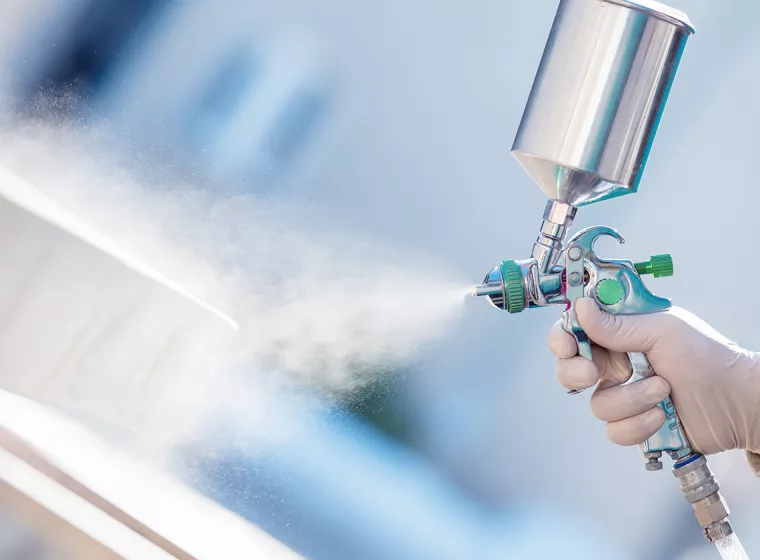November 13, 2023
Green Seal's updated certification requirements restrict PFAS use across a broad product category
Global ecolabeling organization Green Seal has announced it will stop certifying any paints, coatings, floor care products, adhesives, or degreasers that contain per- and polyfluoroalkyl substances (PFAS). The leading green product certification organization's updated PFAS standards follow on its move last year to stop certifying cleaning and personal care products that contain PFAS.
Green Seal considers its certification "one of the highest benchmarks for safety and environmental protection in the marketplace." Its certified products qualify toward points for both the LEED Low-Emitting Materials credit and the LEED v4.1 Materials Ingredient Optimization credit, so this change to its standards will have ripple effects across sustainable construction projects, in addition to the manufacturing of paints, coatings, and floor cleaning and polish products.
PFAS widely used in paints, coatings, and floor care products to improve performance
PFAS is a catchall term that includes thousands of different fluorinated chemistries used across a wide array of products and product types. Green Seal intends to prohibit all PFAS, which they describe as "approximately 12,000 chemicals in this class."
Manufacturers and users of paints, coatings, and floor care products hoping to maintain or secure Green Seal certification will be affected by this change, as this product category historically included PFAS to impart important performance attributes such as durability, stain resistance, and water repellency. Currently, almost all floor finishes contain PFAS as leveling and wetting agents.
Part of a growing trend toward restricting PFAS use
The announcement from Green Seal matches a growing trend across several U.S. states and the European Union in attempting to restrict PFAS broadly as a class or in specific product categories with known or historical PFAS use. However, unlike some state proposals, Green Seal's restriction does not say whether the prohibition is specific to intentionally added PFAS or applicable to threshold values. The health and environmental risk profile for the full proposed list of restricted PFAS and methods for detecting them at very low concentrations are still evolving.
Certification that products do not contain any PFAS will require analytical testing — a considerable challenge given the complexity and range of matrices represented by the broad product category, the cost of testing, the very low concentrations at issue, and the general lack of accepted industry standard test methods for PFAS.
What Can We Help You Solve?
Exponent closely monitors the continually changing PFAS regulatory landscape to help clients prepare for new PFAS regulations. Our experts have years of experience investigating supply chains for PFAS sources, working with third-party laboratories to test materials and products for specific PFAS and total organic fluorine, and assisting clients in making decisions that suit their product lines and stewardship goals.

PFAS Consulting Services
Manage PFAS in your products, supply chains, and waste streams.

Product Stewardship
Overcome business and regulatory challenges at every stage, from research and design to disposal and recycling.

Sustainability
Meet changing sustainability regulations with rigorous science and experienced consulting services.

Paints & Coatings
Evaluate the application, adhesion, and durability of paints and coating materials for diverse industries and applications.

Polymer Science Consulting Services
Scientific insights for products containing polymers, fiberglass, resins, plastics, or other composite materials.





